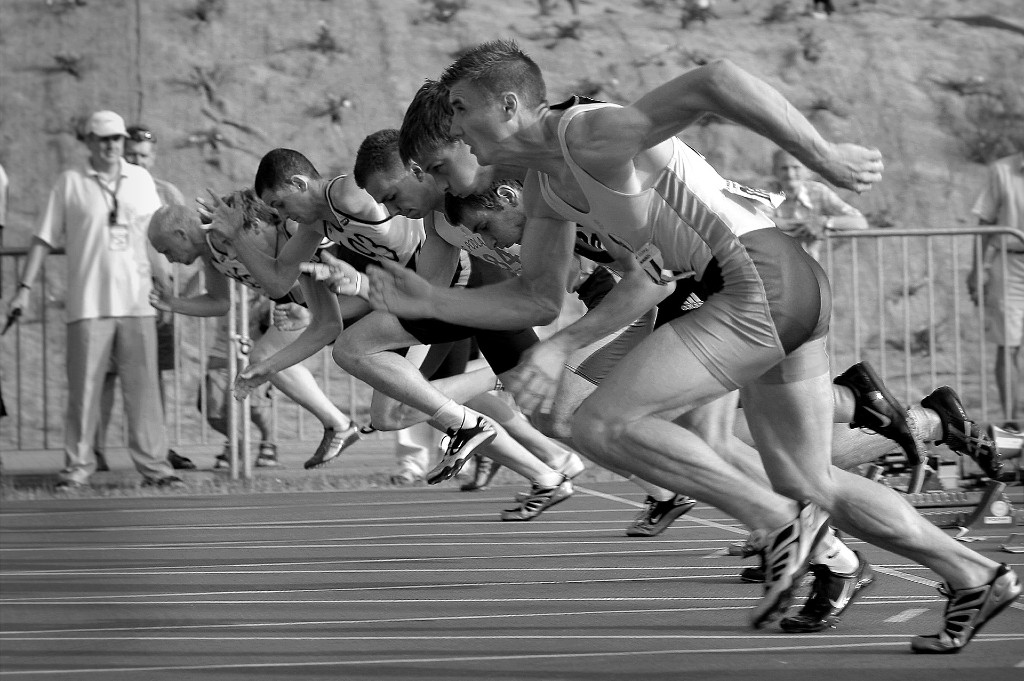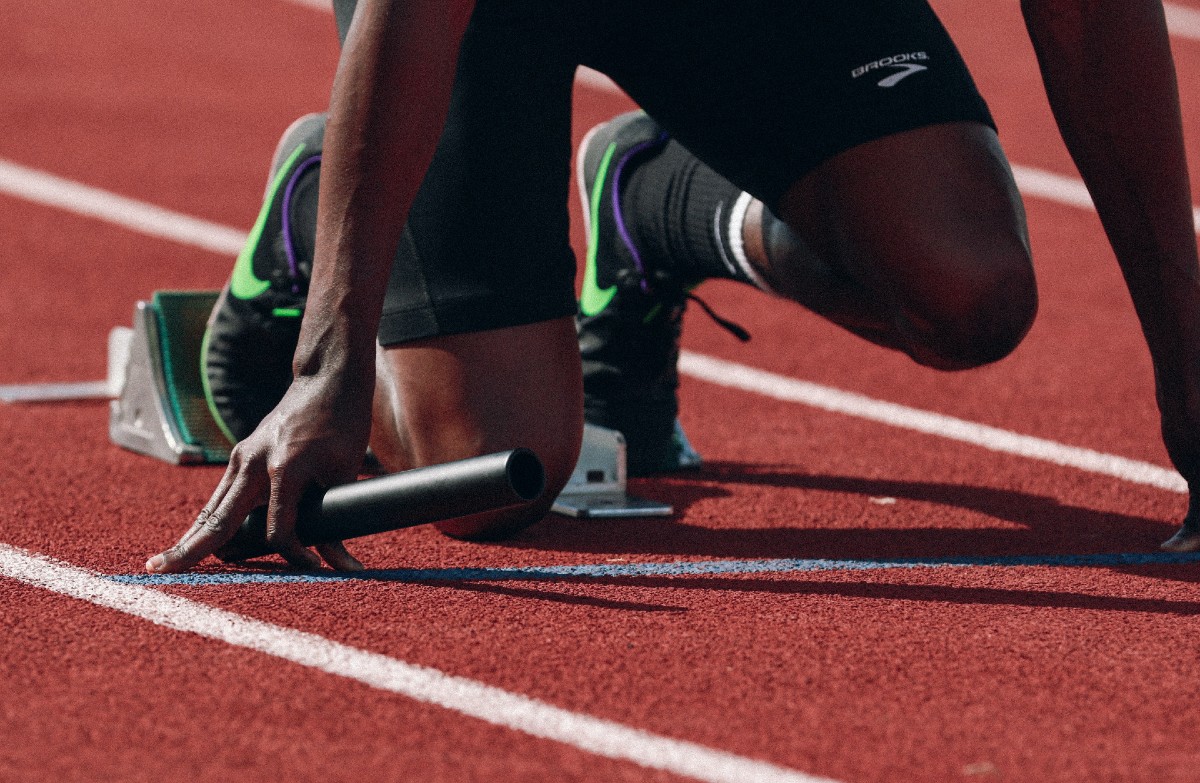Contents
Athletes put a tremendous amount of effort into maximizing their health: for many competitors, no detail is too small. Even small tweaks in your routine can be the difference between good and great performances.
One of the most underrated aspects of athletic performance is sleep. Anyone who has suffered through sleepless nights knows the effect this can have on the rest of your day. From poor cognition to a reduced immune response to weight gain, sleep deprivation can seriously impact your health.
For athletes, there is a lot at stake, as poor sleep quality can drastically reduce your athletic performance. Getting enough hours of sleep allows your tissues, cells, and heart to repair after tough workouts. Plus, it improves your mental focus and prevents illness.
Luckily, there is a bidirectional relationship between athletes and sleep. Exercise can actually improve your sleep, and vice versa, high sleep quality improves your athletic performance.
Let’s take a deeper look at how your sleep impacts your athletic performance and what the research shows.
Sleep and Athletic Performance
As an athlete, you probably pay close attention to your diet, hydration, and muscular recovery. But don’t forget, it is just as important to build healthy sleep habits to optimize your performance.
There are a number of reasons sleep is particularly important for athletes.
- It allows your tissues to recover after tough workouts: Sleep gives your heart a chance to rest and improves overall cardiovascular health. The more effectively you recover from workouts, the faster progress you will make in your training.
- Boosting immune function: A 2012 study found that “Sleep and the circadian system exert a strong regulatory influence on immune functions.” Even a common cold can appreciably impact your ability to perform and feel your best, so this is great news for athletes.
- Injury recovery: It happens to the best of us- if you train hard, you will likely encounter an injury eventually. Sleep helps you recover from injuries faster, as this 2019 abstract showed.
- Improved cognition: Sleep loss causes poor memory, focus, and slow reaction time. According to this 2007 analysis, “The negative effect of both acute total and chronic partial [sleep deprivation] on attention and working memory is supported by existing literature.” And as we all know, having a sharp mind is key to focusing on your athletic demands and performing at a top-level.
- Metabolism function and hormone balance: Poor sleep causes metabolic dysfunction and hormone imbalances that can lead to weight gain and diabetes.
- Dietary choices: Research suggests that getting sufficient quality and quantity of sleep may actually help you make better dietary choices. In fact, getting the right amount of sleep reduces the amount of sugar consumed overall. This isn’t surprising- when you’re tired, it’s natural to reach for high-energy food sources. Plus, sleep deprivation reduces leptin levels, a hormone that causes you to feel full, so you are more prone to overeating when you experience sleep deprivation.
These are all good reasons to prioritize setting healthy sleep patterns. But if that wasn’t enough, here are the studies on the effects of sleep deprivation on elite athletes and the overall effects of sleep extension.
Studies on Sleep and Athletes
Sleep extension is increasing the hours of sleep to improve your health outcomes including motor responses, cell repair, and mental health.
This 2011 study on elite athletes aimed to examine if sleep extension could improve the performance of collegiate basketball players. Researchers followed eleven healthy students on the Stanford University men’s varsity basketball team with an average age of 19.4 years.
After following students for 2-4 weeks to establish their baseline sleep patterns, they went through a period of sleep extension for 5-7 weeks, increasing their sleep to 10 hours a night.
Researchers then measured their athletic performance including basketball shooting accuracy and timed sprints. They evaluated the elite athletes’ reaction time, levels of daytime sleepiness, and mood.
The study concluded that the collegiate basketball players’ sleep caused a measurable improvement in their athletic performance. “Subjects demonstrated a faster timed sprint following sleep extension (16.2 ± 0.61 sec at baseline vs. 15.5 ± 0.54 sec at end of sleep extension, P < 0.001). Shooting accuracy improved, with free throw percentage increasing by 9% and 3-point field goal percentage increasing by 9.2% (P < 0.001). Mean PVT reaction time and Epworth Sleepiness Scale scores decreased following sleep extension (P < 0.01). POMS scores improved with increased vigor and decreased fatigue subscales (P < 0.001). Subjects also reported improved overall ratings of physical and mental well-being during practices and games.”
In a 2019 review, researchers found that “Sleep serves an absolutely vital physiological function and is arguably the single most important factor in exercise recovery…quality sleep should be part of the foundation of an elite athlete’s routine. Building this vital function into an athlete’s training program must be emphasized.” Both male and female swimmers who practiced sleep extension recorded faster 15-meter springs, diving block reaction times, and turn times, not to mention an increase in kick strokes. Plus, they reported less daytime fatigue and drowsiness, and an elevated mood.
Another 2015 study demonstrated the positive effects of sleep extension: “Six nights of extended sleep improve sustained attention and reduce sleep pressure. Sleep extension also protects against psychomotor vigilance task lapses and microsleep degradation during total sleep deprivation. These beneficial effects persist after one night of recovery sleep.”
In conclusion, any thoughtful athletic preparation plan should include getting restful sleep at the forefront.

Effects of Sleep Deprivation
Sleep deprivation can lead to a number of health problems, not to mention reduce your athletic performance. In fact, this 2017 publication notes:
“Sleep disruptions have substantial adverse short- and long-term health consequences.
Sleep disruption is associated with increased activity of the sympathetic nervous system and hypothalamic–pituitary–adrenal axis, metabolic effects, changes in circadian rhythms, and proinflammatory responses.
In otherwise healthy adults, short-term consequences of sleep disruption include increased stress responsivity, somatic pain, reduced quality of life, emotional distress and mood disorders, and cognitive, memory, and performance deficits.
For adolescents, psychosocial health, school performance, and risk-taking behaviors are impacted by sleep disruption. Behavioral problems and cognitive functioning are associated with sleep disruption in children.
Long-term consequences of sleep disruption in otherwise healthy individuals include hypertension, dyslipidemia, cardiovascular disease, weight-related issues, metabolic syndrome, type 2 diabetes mellitus, and colorectal cancer.
All-cause mortality is also increased in men with sleep disturbances. For those with underlying medical conditions, sleep disruption may diminish the health-related quality of life of children and adolescents and may worsen the severity of common gastrointestinal disorders.”

The evidence is clear: your overall wellness directly depends on the quality of your sleep.
Partial Sleep Deprivation
Even partial sleep deprivation can cause serious health problems.
This 2020 publication on partial sleep deprivation studied 52 healthy individuals in an 11-day study protocol. After their healthy baseline sleep levels were established over a 7-day period, the participants were recorded sleeping 2 hours less than their typical circadian rhythm for 3 nights.
After the 3 days of partial sleep deprivation, researchers looked at their response accuracy and speed. Results showed that “there was a significant change in reaction time, number of commission errors, subjective performance, subjective exertion, and positive affect across the visits. Specifically, there was a linear decrease in reaction time, performance, and positive affect throughout the study, and a significant quadratic trend for commissions and exertion (first decreasing, then increasing after sleep deprivation).
Overall, this study showed that lack of sleep caused participants to be more impulsive and experience less positive affect.
Conclusion
The importance of sleep in your athletic performance cannot be understated. For your body to recover from training, heal from injuries, and effectively balance hormones, it’s essential to avoid sleep deprivation and consistently achieve high sleep quality. But it’s not just elite athletes that benefit: everyone can gain from improving their sleep!

If you’re interested in learning more about how CBD can help you fall asleep and improve your athletic performance, contact Mojave Rx today.
Disclaimer
The statements expressed on this website are purely opinion of the author and not factual. These statements have not been evaluated by the Food and Drug Administration. Any products referenced on this website are not intended to diagnose, treat, cure, or prevent any disease. It’s highly suggested to consult with your medical professional prior to any use of the products referenced on this website. This website and author specifically disclaim any liability in connection with the products contained on the website.

